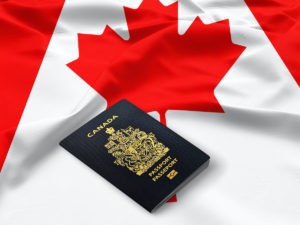Immigration after Private College in Canada

Introduction: Immigration after Private College in Canada
Canada is a popular destination for international students due to its quality education system and relatively open immigration pathways. For many students, studying at a Canadian college or university is a first step toward permanent residency (PR). While public colleges and universities offer a more straightforward route to work permits and PR, private college graduates face unique challenges in their post-graduation immigration journey. This guide outlines the specific immigration pathways available to graduates of private colleges in Canada, explains the limitations they may encounter, and provides insights into alternative strategies to achieve permanent residency.
1. The Role of Education in Canadian Immigration after Private College in Canada
Studying in Canada can be an essential part of an immigrant’s journey to PR. For international students, the country offers several advantages:
- Quality Education: Canadian institutions are globally recognized, and studying here allows students to develop skills highly valued by Canadian employers.
- Work Experience: Students often have the opportunity to work during their studies and, in some cases, after graduation, which can contribute to their eligibility for immigration programs.
- Pathways to PR: Through programs like the Post-Graduation Work Permit (PGWP) and the Canadian Experience Class (CEC), Canada encourages international students to transition to PR.
However, private college graduates may not have the same options as public institution graduates, particularly concerning the PGWP.
2. Understanding the Post-Graduation Work Permit (PGWP)
The PGWP allows international graduates of eligible Canadian institutions to work in Canada for up to three years, depending on the length of their program. PGWP eligibility is crucial for immigration because:
- It provides the work experience needed for pathways like the Canadian Experience Class (CEC).
- It gives graduates time to meet provincial nomination criteria if they aim to apply through Provincial Nominee Programs (PNPs).
Private College and PGWP Eligibility Not all private college programs in Canada qualify for a PGWP. In general:
- Only private colleges in Quebec, those authorized by specific provincial regulations, or those that offer a program in partnership with a public institution may qualify for a PGWP.
- Graduates from most private institutions must explore alternative work permits or further studies to maintain legal status in Canada and gain work experience.
3. Work Permit Options for Private College Graduates
Since many private college graduates do not qualify for the PGWP, they must look at other work permit options to remain in Canada legally. Here are some of the main alternatives:
Employer-Specific Work Permits: Immigration after Private College in Canada
- Temporary Foreign Worker Program (TFWP): If a graduate secures a job offer, the employer can apply for a Labour Market Impact Assessment (LMIA) to prove that hiring a foreign worker will not negatively impact the Canadian labor market. Once approved, the graduate can apply for an employer-specific work permit tied to that job.
- Global Talent Stream (GTS): Some technology-related occupations qualify for a streamlined LMIA process under the GTS. Graduates with specialized skills may benefit from this if they find employment with an eligible employer.

Intra-Company Transfer: Immigration after Private College in Canada
Some private college graduates may find positions with multinational companies in Canada. The Intra-Company Transfer (ICT) program allows certain professionals to work for their company’s Canadian branch without an LMIA. This pathway is particularly useful for graduates who return to their home country but want to transfer to Canada with their employer.
International Mobility Program (IMP): Immigration after Private College in Canada
The IMP allows for LMIA-exempt work permits for specific situations that benefit Canada culturally, economically, or socially. Some private college graduates might be eligible if they qualify for categories like reciprocal employment agreements or recognized intra-company transfers.
4. Pathways to Permanent Residency (PR): Immigration after Private College in Canada
Even without a PGWP, private college graduates can still pursue PR. Here are several pathways that may be accessible to them:
Express Entry System: Canadian Experience Class (CEC) and Federal Skilled Worker (FSW) Programs
- Canadian Experience Class (CEC): For international students with work experience in Canada, the CEC within Express Entry is a popular option. Private college graduates who find alternative work permits can gain the required work experience and eventually apply through CEC.
- Federal Skilled Worker (FSW) Program: This program assesses candidates based on factors like language skills, education, and work experience. Graduates with substantial work experience abroad or in Canada may be eligible. Since an LMIA-backed work permit enhances an Express Entry profile, graduates who secure such permits may receive a significant score boost.
Provincial Nominee Programs (PNPs): Immigration after Private College in Canada
Each Canadian province operates its own PNP to address specific labor market needs. Many PNPs have streams tailored for international students; however, eligibility varies significantly between provinces.
- Alberta: Offers pathways that may accept private college graduates if they meet other criteria.
- British Columbia: The British Columbia PNP Tech Stream welcomes candidates with job offers in specific tech occupations. Graduates from private colleges who secure a job in one of these fields may qualify.
- Manitoba and Saskatchewan: Offer pathways for students who have completed programs within the province. Graduates must show they are employable within provincial labor markets.
Graduates should research individual PNPs for eligibility requirements as these may change based on local economic needs.
Rural and Northern Immigration Pilot (RNIP): Immigration after Private College in Canada
The RNIP aims to support smaller communities by encouraging immigrants to settle in rural areas. Some communities may accept candidates with job offers who meet community-specific criteria. For private college graduates, relocating to a designated community and securing employment may increase their chances of obtaining PR through RNIP.
Atlantic Immigration Program (AIP): Immigration after Private College in Canada
The AIP is a program aimed at attracting skilled workers to Canada’s Atlantic provinces. Private college graduates who find jobs with eligible employers in the Atlantic provinces may qualify for this pathway, especially if they possess specialized skills or work experience.
5. Challenges for Private College Graduates Seeking Immigration after Private College in Canada
Limited Access to PGWP
Graduates from non-eligible private colleges face a considerable challenge due to their inability to qualify for a PGWP. Without it, they must rely on employer-specific permits, which can limit their job mobility and access to PNPs.
Job Market Competition
Private college graduates often compete with public institution graduates who have access to PGWP, making employers more inclined toward hiring PGWP holders due to the simplicity and flexibility of the permit.
Additional Financial Costs
Many private college graduates may choose to study again at a public institution to gain eligibility for a PGWP, incurring additional costs. Additionally, they may face expenses related to securing employer-specific work permits or applying for LMIAs.
Varying Recognition of Private College Credentials
Not all employers or immigration programs weigh private college credentials as heavily as those from public institutions. Graduates may need to validate their credentials or demonstrate relevant experience to qualify for competitive job roles or immigration programs.

6. Strategies for Private College Graduates: Immigration after Private College in Canada
Further Education at Public Institutions
Some private college graduates opt to pursue further studies at a Canadian public institution, making them eligible for a PGWP. By selecting a program that aligns with their career goals, graduates can increase their PR eligibility.
Networking and Career Development
Building a professional network can significantly aid private college graduates in finding job offers that qualify for employer-specific permits. Participating in industry events, internships, or volunteer opportunities can create valuable connections.
Leveraging Alternative Pathways : Immigration after Private College in Canada
Exploring immigration programs like PNPs, the Atlantic Immigration Program, or the RNIP can open alternative pathways to PR. Graduates can target provinces or communities with labor shortages and tailor their job search to these areas.
Securing LMIA-Supported Employment : Immigration after Private College in Canada
If graduates can secure a job offer from an employer willing to support an LMIA application, it could greatly enhance their immigration prospects. Although this process can be lengthy and costly, it is a valuable option for private college graduates.
To help with your report on immigration after studying at a private college in Canada, here are some key areas it could cover:
1. Overview of Canadian Immigration Options Post-Graduation
- Post-Graduation Work Permit (PGWP): Explain the PGWP program, eligibility, and how it supports work experience that can lead to permanent residency (PR). Note that graduates of certain private colleges may not qualify, impacting their immigration pathway.
- Provincial Nominee Programs (PNPs): Discuss PNPs, where each province has unique requirements and options for international graduates looking to stay. Many PNPs consider graduates from public and approved private institutions differently.
- Permanent Residency Streams: Outline PR options for graduates, such as Express Entry (including the Canadian Experience Class), PNPs, and pilot programs that may prioritize specific labor needs (e.g., rural immigration programs).
2. Eligibility for Work Permits : Immigration after Private College in Canada
- Explain why not all private colleges’ programs are eligible for PGWPs. Include examples of programs that may or may not be eligible based on factors like program length, accreditation status, and institution type.
- Provide guidance on alternative work permit options, such as employer-specific work permits, which may apply to private college graduates without PGWP eligibility.
3. Pathways for Graduates from Non-PGWP Eligible Programs
- Emphasize alternative routes for private college graduates who cannot get a PGWP, such as re-enrolling in a public college or participating in PNPs with work experience gained through employer-specific permits.
- Mention how some students opt to pursue further studies at a public institution to qualify for PGWP, potentially extending their stay.
4. Provincial and Regional Opportunities: Immigration after Private College in Canada
- Discuss the role of regional pilot programs and smaller city immigration incentives, particularly for graduates from private institutions.
- Provide examples of provinces that offer paths for international students from non-eligible PGWP institutions, especially if they have skills in demand locally.

5. Challenges and Considerations for Private College Graduates
- Discuss challenges such as the limitations in work options and navigating provincial eligibility for PR. Also, touch on tuition costs and how some private colleges may not have the same employment connections as public ones.
- Include any additional costs for permits or new studies, as well as language requirements that may be mandatory for some pathways.
6. Success Stories and Strategies: Immigration after Private College in Canada
- Offer case studies or success stories where private college graduates have successfully transitioned to PR.
- Suggest strategic options like combining work experience with skilled work and networking to optimize their chances of success.
Conclusion
For graduates from private colleges in Canada, the pathway to PR is often more challenging than it is for their peers from public institutions. However, with careful planning and a willingness to explore various pathways, private college graduates can still achieve their immigration goals. By understanding the nuances of work permits, provincial programs, and specific immigration streams, private college graduates can overcome these challenges and secure a future in Canada.
In summary, Canada’s immigration pathways are diverse, offering various options even for those who face initial obstacles. With strategic decision-making and perseverance, private college graduates can successfully transition from students to Canadian residents, contributing to Canada’s economy and multicultural fabric.
In case, if you need help with Immigration after Private College in Canada or other immigration support in Canada, please fill in application below or contact us directly.

